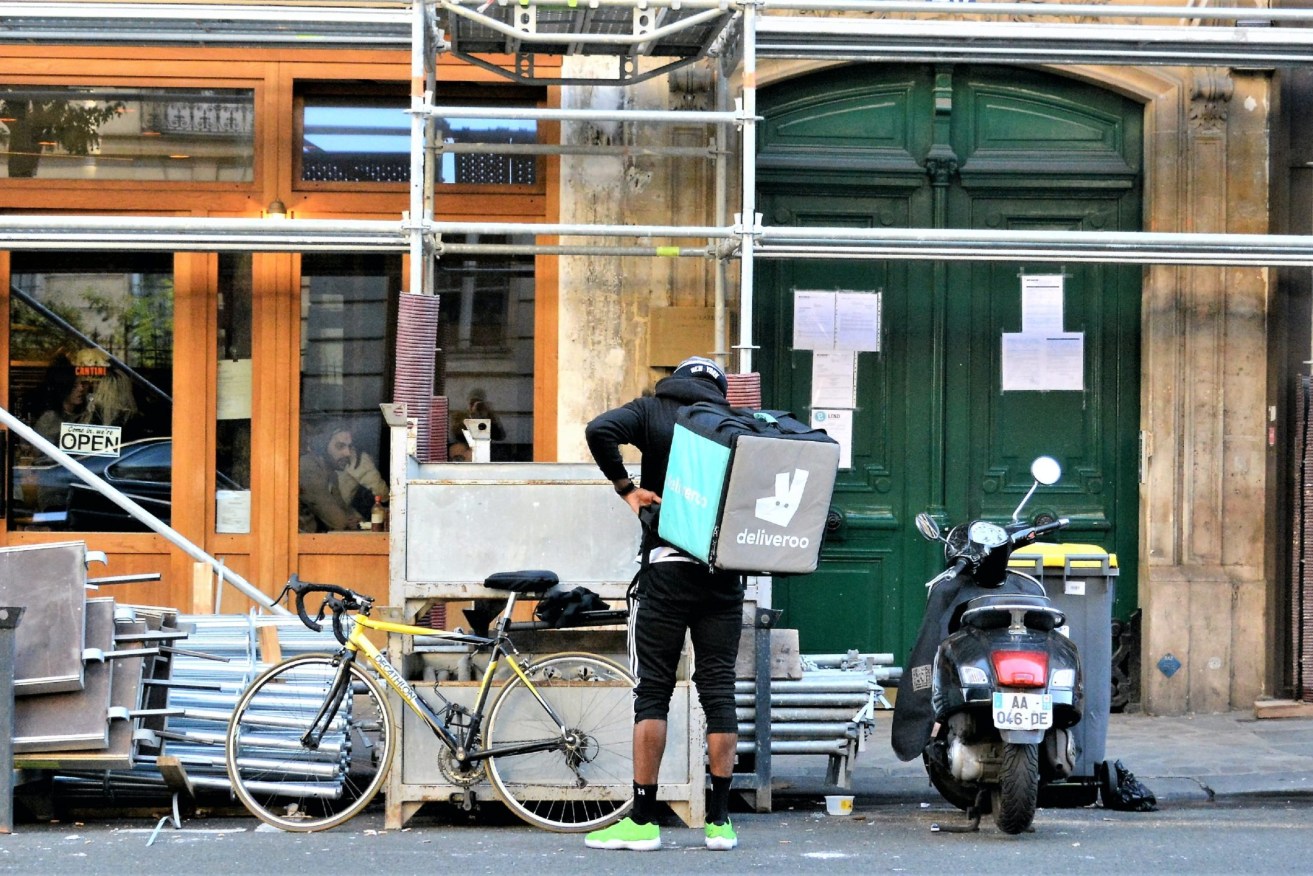Deliveroo ruling set to upend the gig economy
The Fair Work Commission has found a person who delivered meals for Deliveroo was an employee, not a contract worker, in a major boost for gig workers.

The commission ruled that a delivery rider working for Deliveroo was an employee and therefore unlawfully terminated during the COVID-19 pandemic.
Brazilian national Diego Franco was into his fourth year of working for Deliveroo in Sydney when terminated on April 30, 2020, for delivering meals too slowly.
Deliveroo asserted it was within its rights as Franco was an independent contractor and it had no control over when, where or how long he worked during any particular engagement.
Unlike a traditional casual or part-time employee, Franco was permitted to “multi-app”, allowing him to work for multiple delivery companies at the same time he was delivering for Deliveroo.
But the Fair Work Commission found the various elements of the relationship produced a picture of an employer-employee relationship.
“Although, the picture is impressionistic and not precise, it is nevertheless a compelling conclusion, drawn from the answer to the question: Does the relationship between Mr Franco and Deliveroo look more like employment or does it look more like independent contracting?” Commissioner Ian Cambridge said.
The level of control Deliveroo possessed “when properly comprehended, represented an indicium that strongly supported the existence of employment rather than independent contracting”, he said.
While “multi-apping” did point away from the existence of an employment relationship, it could not represent a factor that prevented such a relationship in the context of the modern, rapidly changing workplace significantly altered during the COVID-19 pandemic.
The British-founded delivery business will appeal, not accepting the premise of the decision.
“Riders frequently tell us that the freedom that comes with self-employment is the key reason why they choose Deliveroo, and we will appeal this decision to protect those freedoms,” a Deliveroo spokeswoman said.
The Transport Workers Union, which backed Franco’s case, said Tuesday’s decision was a major boost for gig workers.
“This ruling has huge implications for gig workers in Australia and we urge the federal government to look at it today and to start devising regulation now,” national secretary Michael Kaine said in a statement.
Having found Franco was an employee, Commissioner Cambridge was scathing of Deliveroo’s conduct in dismissing him.
Franco was notified by email on April 23 his services were being terminated in a week’s time because of slow deliveries.
While he said he never received notice, Deliveroo said it had informed the rider in February 2020 about his slowness.
Its internal systems also showed he was 20 per cent slower than comparable riders.
But critically, Franco was never given a clear indication of the delivery times were expected of him, Commissioner Cambridge said.
The dismissal by email without any proper and prior warning was “unjust, unreasonable, and unnecessarily harsh”, he found.
No response was sought from Franco prior to his termination.
“Irrespective of whether Mr Franco was a contractor or an employee, it was plainly unconscionable to terminate what would be well understood to be his primary source of income, without first hearing from him,” the commissioner said.
Even accounting for the parties’ usual use of electronic communications, the impact of firing someone “was a matter of such significance that basic human dignity requires that a matter of such gravity should be conveyed personally”.
As Franco had sought, Deliveroo was ordered to reinstate the rider as an employee.
The Australian subsidiary of the British firm was also ordered to compensate him for wages “lost or likely to have been lost because of the dismissal.
Cambridge noted the dichotomy of the common law position in Australia.
The Full Court of the Federal Court in 2020 decided owner-drivers of delivery trucks were employees while, separately, finding a labourer engaged by a labour-hire company was a contractor.
Similarly, the commission has found a food delivery worker on a bicycle was an employee while one driving a motor vehicle was an independent contractor.












